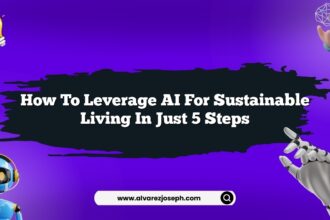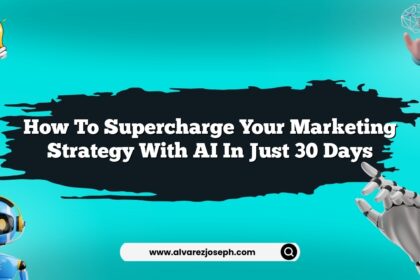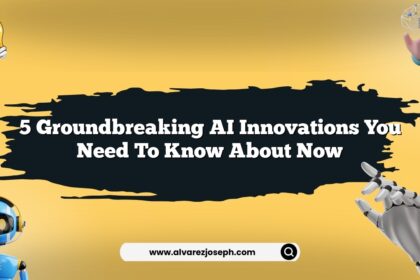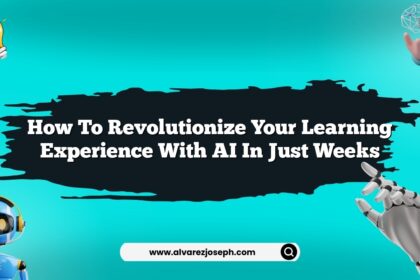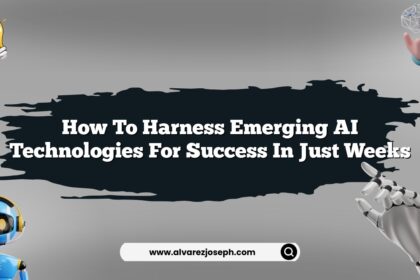Imagine waking up one day and finding out that your best friend is actually a super-smart AI. It knows your preferences, can hold a conversation about anything under the sun, and even helps you make decisions. Cool, right? But also kind of creepy? Let’s not kid ourselves; the future of AI is a mixed bag of excitement and anxiety.
I mean, it’s like a sci-fi movie, but without the aliens or the flashy special effects. It’s all about algorithms and data. So, what’s the real deal about AI? Where’s it heading, and what does it mean for us? Buckle up, because this is a wild ride through the truth about AI and how it’s going to shape our lives.
The Current State of AI: What’s Cooking?
Alright, first things first. AI’s not just about robots taking over. That’s a cliché we need to retire. AI today is super involved in our everyday lives.
From the moment you check your phone to that time you asked Siri what the weather is like… It’s everywhere. Think about it: personalized recommendations on Netflix or Spotify. That’s AI doing its magic.
But here’s the kicker: not all AI is created equal. We’ve got narrow AI, which is pretty much a one-trick pony. It does one thing, and it does it well. Like, your recommendation system is good at knowing what you like.
Then there’s general AI, which is like the holy grail of AI. It’s still in the realm of dreams. No one’s cracked that nut yet. We’re years, maybe decades away from that. So… let’s not get ahead of ourselves.
The Good, the Bad, and the Ugly of AI
Now, let’s talk about the good stuff. AI can analyze tons of data in seconds. In healthcare, it’s revolutionizing diagnostics. I mean, we’re talking about algorithms that can detect diseases from scans better than some doctors. That’s a game-changer!
But let’s not gloss over the bad. There’s a whole ethics thing we need to face. AI can perpetuate biases. Ever heard of “algorithmic bias”? Yeah, it’s real. If the data used to train AI has biases, the AI will too. So we’ve got to be careful.
And then there’s the ugly side: job displacement. Robots aren’t just a threat to your sci-fi dreams. They’re coming for jobs too. Sure, some jobs will evolve, but others? Well, they might disappear entirely.
Here’s what you need to know: the future of work is going to be different, and we need to be prepared for that.
How AI Changes Daily Life
So how does all this affect you? Let’s dig into the nitty-gritty.
-
Personal Assistants: They’re becoming smarter. You can ask them to book your appointments, set reminders, or even control smart home devices. It’s like having a personal assistant who doesn’t need coffee breaks.
-
Shopping: Ever notice how online stores seem to know exactly what you want? Yep, AI is behind that. It analyzes your shopping habits to show you products you might actually buy. Useful? Sure. A little invasive? Totally.
-
Healthcare: If you’ve ever had a virtual consultation, you know AI is creeping into healthcare. From scheduling to diagnostics, it’s like having a doc in your pocket.
-
Education: Online learning platforms are supercharging education using AI. They adapt to your learning pace. If you’re struggling with calculus, AI will offer more practice problems. That’s cool and all, but what if it gets it wrong?
The Future of AI: What’s Next?
Let’s not get lost in the weeds. What’s next for AI? Here’s where it gets interesting.
-
Integration: Expect AI to integrate more into your life. Smart homes? Yeah, they’re going to get smarter. Picture your fridge telling you to buy more milk when you’re running low. Creepy? Maybe. Convenient? Absolutely.
-
Brain-Machine Interfaces: This sounds like something from a sci-fi movie, but it’s already in early stages. The idea is to connect our brains directly to machines. Imagine controlling your computer just with thoughts. Sounds cool, but also a bit alarming, right?
-
Ethical AI Development: As we dive deeper into AI, the conversation about ethical development will get louder. Developers, companies, and even governments will need to address issues of bias, privacy, and security. It’s time we put some real thought into how we’re shaping AI.
What You Can Do to Prepare
So, now you’re probably thinking, "What does this mean for me?" Good question! Here are some practical steps you can take to navigate this evolving landscape:
-
Stay Informed: The tech world moves fast. Keep up with the latest in AI. Follow blogs, podcasts, or influencers who focus on emerging tech.
-
Upskill: If you’re worried about job security, consider learning new skills. Tech skills are in hot demand.
-
Be Skeptical: When you see claims about AI, don’t just swallow it whole. Ask questions. What’s the source? Who benefits?
-
Engage in Conversations: Talk about AI with friends, family, and colleagues. The more we discuss it, the better we can understand its implications.
-
Advocate for Ethical AI: Support initiatives or organizations that promote ethical AI development. This is crucial for our future.
Quick Summary
- AI is already part of our lives, from personal assistants to online shopping.
- Narrow AI is common, while general AI is still a dream.
- AI can improve healthcare and education but also poses ethical concerns.
- Expect more integration of AI into daily life.
- Brain-machine interfaces are on the horizon.
- Staying informed and upskilling is key to navigating the changing job landscape.
- Be skeptical of AI claims and engage in discussions.
- Advocate for ethical development of AI to shape a better future.
Frequently Asked Questions
What is the difference between narrow AI and general AI?
Narrow AI is designed to handle specific tasks, like recommending movies or playing chess. General AI, on the other hand, would have the ability to perform any intellectual task a human can do. We’re not there yet.
How does AI impact job security?
AI can automate tasks, which may lead to job displacement in certain sectors. However, it can also create new job opportunities in areas like AI development and maintenance. The key is to adapt and upskill.
Is AI biased?
Yes, AI can be biased if the data it learns from contains biases. This can result in unfair treatment in areas like hiring or lending. It’s crucial for developers to address these biases during the training process.
How can I stay informed about AI developments?
Follow tech blogs, listen to podcasts, and join online communities focused on AI. Engaging with these resources will help you stay up-to-date with the latest trends and discussions.
Will AI take over the world?
While AI is becoming more capable, the idea of it taking over the world is more fiction than fact. AI lacks consciousness and emotions. Its abilities depend on human programming and ethical considerations.
What are brain-machine interfaces?
Brain-machine interfaces connect the human brain directly to external devices, allowing control through thought. While it sounds futuristic, early research is already underway. There are many ethical and practical implications to consider.
So there you have it! The truth about AI isn’t all gloom and doom, but it’s not all sunshine and rainbows either. It’s complicated, exciting, and a bit scary. Just like life itself. Remember, the future is coming, and it’s up to us to shape it.



